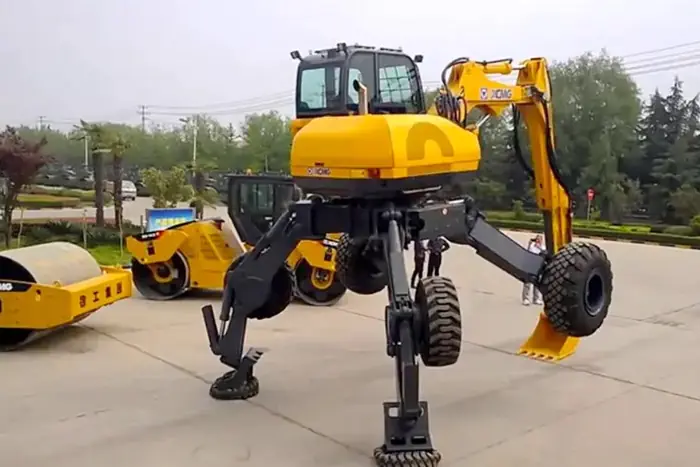Future Trends in Excavator Technology: Automation, Sustainability, and Intelligence

Future Trends in excavator Technology: Automation, Sustainability, and Intelligence
The rapid pace of technological advancement has brought a wave of transformation to the construction industry, with Excavators evolving far beyond their traditional role as heavy machinery. Modern excavators are now becoming intelligent machines, integrating cutting-edge technologies to enhance efficiency, safety, and environmental sustainability. This article explores key trends shaping the future of excavator technology and their potential impact on industries like construction, mining, and infrastructure development.
1. Automation and Smart Technology Integration
One of the most significant developments in future excavators will be the adoption of advanced automation technologies. Autonomous excavation, path planning, automated loading, and unloading are just a few examples of how excavators are moving toward fully automated operations. These innovations aim to streamline construction processes, boost productivity, and reduce human error.
Moreover, artificial intelligence (AI) and machine learning will enable excavators to perform intelligent decision-making. For instance, AI-powered systems can predict soil behavior, optimize digging patterns, and adapt to extreme weather conditions. By leveraging these capabilities, construction projects will become more efficient and safer, minimizing downtime and ensuring precision.
2. Energy Efficiency and Environmental Sustainability
Sustainability is at the forefront of technological innovation, and excavators are no exception. Future excavators will prioritize energy efficiency by adopting eco-friendly power sources such as electric or hybrid engines. These advancements aim to reduce carbon emissions and enhance fuel efficiency, aligning with global efforts to combat climate change.
In addition, new materials and noise reduction technologies will make excavators more environmentally friendly. Improved energy utilization and quieter operations will help minimize the environmental footprint of construction sites, ensuring compliance with increasingly stringent regulations.
3. Human-Machine Collaboration
Rather than replacing human operators, future excavators will emphasize collaborative work between machines and people. Equipped with advanced sensors and communication systems, these machines will share real-time status updates with operators. This seamless interaction will enable operators to make informed decisions and improve overall efficiency.
For example, an operator can remotely control an excavator while receiving live feedback about terrain conditions, equipment performance, and potential risks. This collaboration ensures that critical tasks are completed with precision while safeguarding worker safety.
4. Cross-Industry Technological Integration
Excavators of the future will not exist in isolation but will integrate with technologies from other industries. For instance, the incorporation of 5G communication and drone technology will enable remote monitoring and control. Construction managers can use drones to survey large sites and communicate data directly to excavators for optimized operations.
Additionally, cloud computing and big data analytics will establish centralized monitoring and scheduling platforms. These platforms will allow decision-makers to analyze equipment performance, predict maintenance needs, and coordinate complex construction tasks remotely. Such integrations will streamline workflows and maximize resource utilization.
5. Customization and Adaptability
As user demands become more diverse, excavators will be designed to cater to specific needs. Manufacturers will offer customized solutions tailored to different industries, terrains, and project requirements. For example, excavators for urban construction may prioritize compact designs and low noise, while mining excavators will focus on durability and high load capacity.
This level of personalization will not only improve operational efficiency but also drive faster technological updates to meet evolving market demands.
Conclusion
The future of excavator technology lies in automation, sustainability, intelligence, and adaptability. These advancements promise to revolutionize traditional construction practices by reducing labor costs, minimizing environmental impact, and enhancing project efficiency.
As excavators evolve, they will play a crucial role in global infrastructure development, urbanization, and resource extraction, unlocking new possibilities across industries. Businesses that adopt these innovations will gain a competitive edge, making now the perfect time for decision-makers to invest in future-ready equipment.
By staying ahead of these trends, your business can ensure that it is well-prepared to meet the challenges and opportunities of a rapidly changing industrial landscape.
Why Choose SAIVS™ as Your Supplier?
Committed to innovation and customer needs, SAIVS specializes in high-quality machinery components for diverse industries like construction, mining, and agriculture. They offer a wide range of parts, including undercarriage components for popular brands, ensuring optimal performance and durability. values customer satisfaction, providing competitive prices, fast shipping, and exceptional service to keep your operations running smoothly.